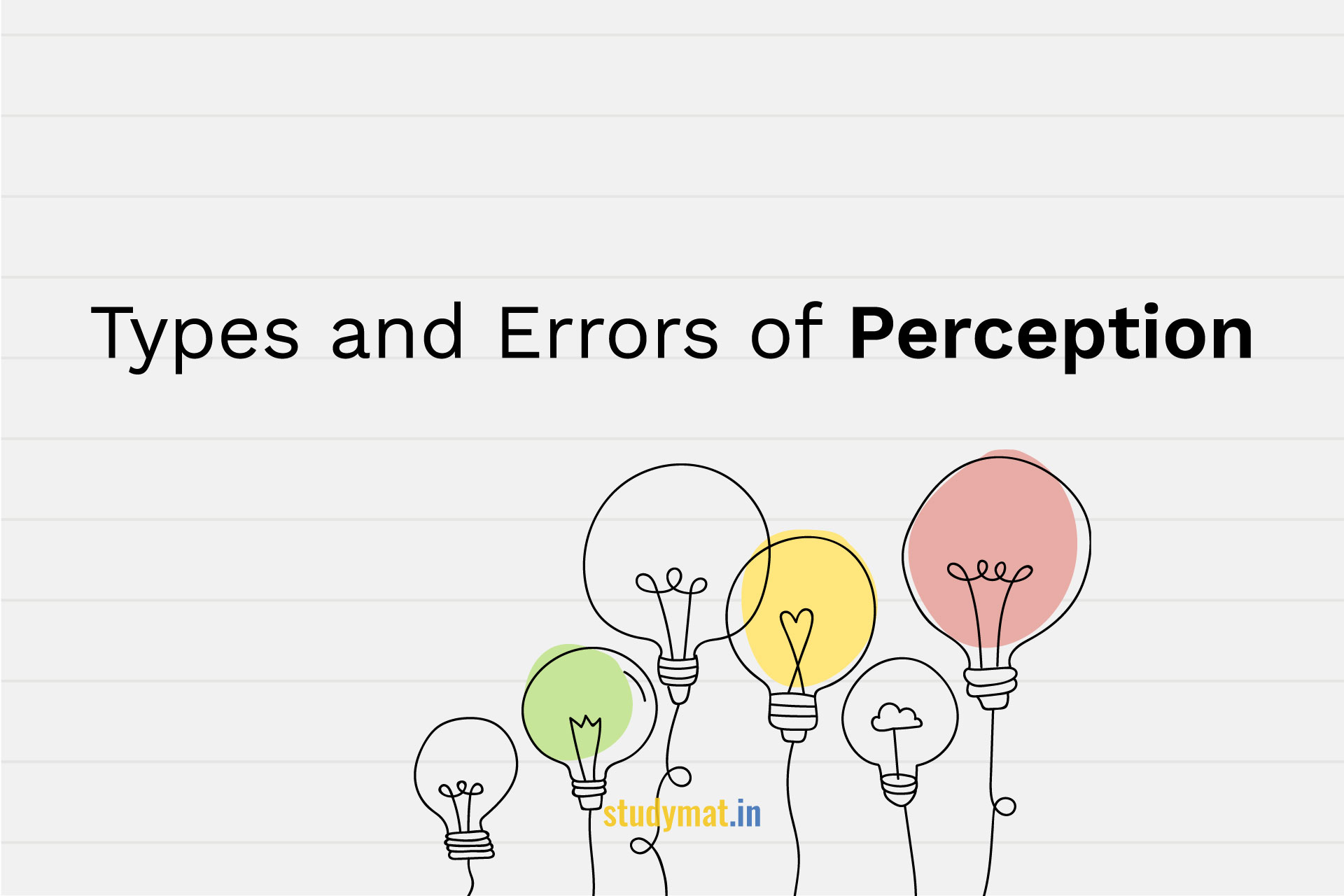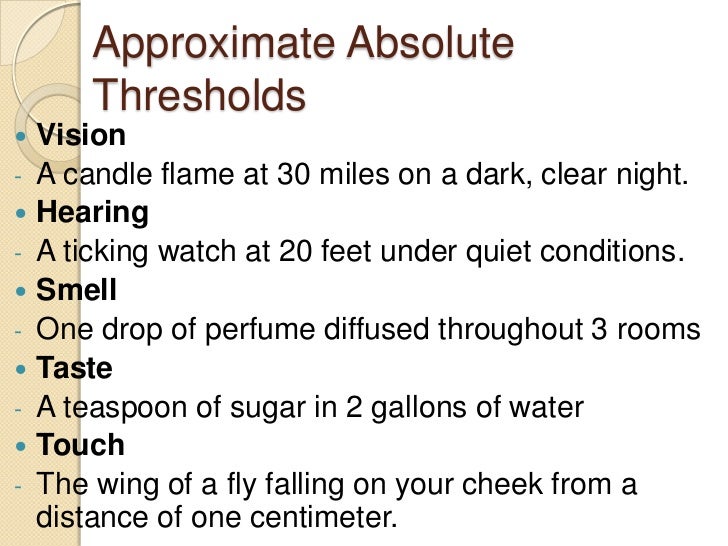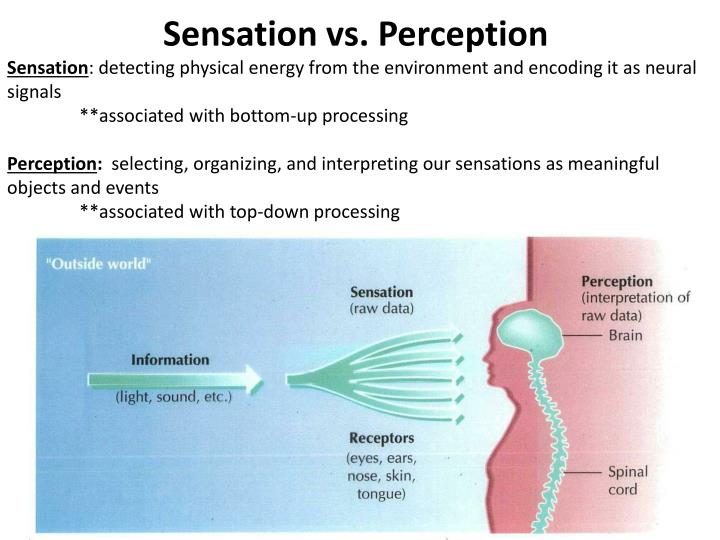
One of these is sensory interaction, which is the working together of different senses to create experience. This meaning making involves the automatic operation of a variety of essential perceptual processes. How the perceptual system interprets the environment

When we look at the face of a good friend or out the window at a view of the countryside, we do not just see a jumble of colours and shapes we see, instead, an image of a friend or an image of a countryside (Goodale & Milner, 2006). Instead, we experience the outcome of perception, which is the total package that the brain puts together from the pieces it receives through our senses and that the brain creates for us to experience. In some cases, our sense receptors perform preliminary information processing on the incoming data, but, by and large, we do not experience sensation.
#Perception definition psychology skin#
The eyes, ears, nose, tongue, and skin sense the world around us.


Psychology in Our Social Livesħ.1 Social Cognition: Making Sense of Ourselves and Othersħ.2 Interacting With Others: Helping, Hurting, and Conformingħ.3 Working With Others: The Costs and Benefits of Social GroupsĨ.2 Problem-Solving: Heuristics and AlgorithmsĨ.3 Cognitive Processes That May Lead to Inaccuracyĩ.2 Individual Differences in Intelligenceĩ.3 Communicating With Others: Development and Use of Languageġ0.2 Long-Term Memory: Categories and Structureġ0.3 Long-Term Memory: Encoding and Storageġ3.2 Infancy and Childhood: Exploring, Learning, and Relatingġ3.4 Adolescence: Developing Independence and Identityġ3.5 Early and Middle Adulthood: Building Effective Livesġ3.6 Late Adulthood: Aging, Retiring, and Bereavementġ4.3 Psychodynamic Origins of Personalityġ4.4 Behaviourist and Social-Cognitive Perspectives on Personalityġ4.5 Genetic and Environmental Influences on Personalityġ5.1 Psychological Disorder: The Challenges of Definitionġ5.2 Insanity: A History of Mental IllnessĬhapter 16. Brains, Biology, and Behaviourģ.1 Neurons, Neurotransmitters, and Hormonesģ.2 Our Brains Control Our Thoughts, Feelings, and Behaviourģ.3 Psychologists Study the Brain Using Many Different Methodsģ.4 Putting It All Together: The Nervous System and the Endocrine Systemģ.6 Genes and Environments: Nature and NurtureĤ.1 Sleeping and Dreaming Revitalize Us for ActionĤ.2 Altering Consciousness With Psychoactive Drugsĥ.5 Accuracy and Inaccuracy in PerceptionĦ.1 Learning by Association: Classical ConditioningĦ.2 Changing Behaviour Through Reinforcement and Punishment: Operant ConditioningĦ.4 Using the Principles of Learning in Everyday LifeĬhapter 7.

1.2 The Evolution of Psychology: History, Approaches, and QuestionsĢ.1 Psychologists Use the Scientific Method to Guide Their ResearchĢ.3 Descriptive and Inferential StatisticsĬhapter 3.


 0 kommentar(er)
0 kommentar(er)
